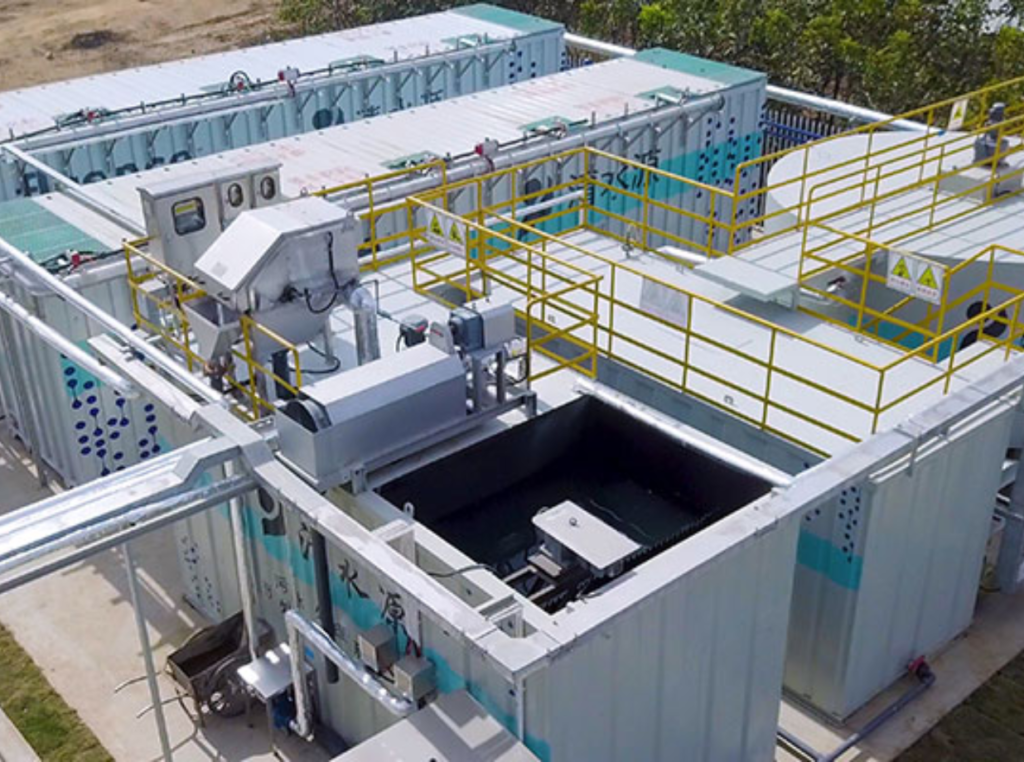Have you ever considered how public-private partnerships could revolutionize decentralized wastewater management? This article explores the intricacies and benefits of leveraging such partnerships to address wastewater challenges. Public-private partnerships (PPPs) in decentralized wastewater management present a dynamic approach to social, economic, and environmental sustainability. This article aims to provide an in-depth analysis of this innovative strategy in managing wastewater resources.

Introduction to Decentralized Wastewater Management
Decentralized wastewater management refers to the treatment and disposal of wastewater at or near the source of generation. This approach stands in contrast to centralized systems, which collect and transport wastewater to a central treatment facility. Decentralized systems offer several advantages, including increased resilience, improved environmental protection, and enhanced public health outcomes.
Key Features of Decentralized Wastewater Management
- Localized Treatment: Wastewater is treated close to its source, reducing the need for extensive infrastructure and decreasing transportation costs.
- Scalability: These systems can be scaled according to the community’s needs, accommodating both small and large populations.
- Flexibility: Decentralized systems can be tailored to specific local conditions, such as climate, geography, and population density.
The Role of Public-Private Partnerships in Wastewater Management
Public-private partnerships represent a collaborative framework where the public sector collaborates with private entities to deliver public services or infrastructure. In the context of decentralized wastewater management, PPPs can provide the financial resources, technological innovation, and operational expertise necessary to design and implement effective wastewater solutions.
Benefits of Public-Private Partnerships
- Financial Resources: Private sector investment can supplement public funds, enabling the development of advanced wastewater treatment systems.
- Technological Innovation: Private entities often bring cutting-edge technologies and innovative approaches to wastewater management.
- Operational Expertise: The private sector can offer specialized skills and experience in managing wastewater treatment facilities.
Case Studies of PPPs in Decentralized Wastewater Management
Several successful case studies illustrate how PPPs can enhance decentralized wastewater management. Understanding these examples can provide insights into best practices and potential challenges.
Case Study 1: The Orangi Pilot Project in Karachi, Pakistan
Background
The Orangi Pilot Project (OPP) initiated in the 1980s in Karachi, Pakistan, aimed to address the sanitation needs of the underserved Orangi Town. The project utilized a decentralized approach, engaging local communities and private entities.
Outcomes
- Community Engagement: Local residents took ownership of the sanitation systems, leading to better maintenance and sustainability.
- Cost Efficiency: The project reduced costs by leveraging local resources and labor.
- Health Improvements: Significant reductions in waterborne diseases were observed due to improved sanitation.
Case Study 2: The Clean Water Program in Ethiopia
Background
Ethiopia’s Clean Water Program, initiated with the involvement of international private firms, focused on decentralized wastewater systems in rural areas.
Outcomes
- Innovative Technologies: The introduction of low-cost, decentralized treatment units.
- Capacity Building: Training provided to local communities and technicians.
- Environmental Impact: Reduction in pollution and better water quality in local water bodies.
Challenges in Implementing PPPs for Decentralized Wastewater Management
Despite the benefits, implementing PPPs in decentralized wastewater management is not without its challenges. Recognizing these challenges is crucial for developing effective strategies.
Financial Constraints
Securing sufficient funding can be difficult, particularly in low-income regions. Both the public and private sectors may face limitations in capital investment.
Regulatory and Policy Issues
Inconsistent policies and regulatory frameworks can pose significant challenges for PPPs. Clear, supportive regulations are essential for successful implementation.
Technological Challenges
While private entities often bring innovative technologies, integrating these solutions into existing infrastructure can be complex. This integration requires careful planning and coordination.
Community Acceptance
Gaining community acceptance is vital for the success of decentralized wastewater projects. Public perception and involvement can significantly influence the project’s sustainability and effectiveness.

Strategies for Successful PPPs in Decentralized Wastewater Management
To overcome these challenges, several strategies can be employed to ensure the success of PPPs in decentralized wastewater management.
Comprehensive Planning
Detailed planning is crucial for the success of PPP projects. This involves assessing the community’s needs, available resources, and potential risks. A comprehensive plan should outline clear objectives, timelines, and responsibilities.
Stakeholder Engagement
Engaging all relevant stakeholders, including government agencies, private firms, and local communities, is essential. Effective communication and collaboration can ensure that all parties are aligned and committed to the project’s goals.
Robust Financial Models
Developing robust financial models that outline funding sources, cost estimates, and revenue projections is critical. This includes exploring various financing mechanisms such as grants, loans, and private investments.
Innovative Technologies
Leveraging innovative technologies can enhance the efficiency and effectiveness of decentralized wastewater systems. This involves staying updated with the latest advancements and exploring opportunities for integration.
Policy Recommendations for Promoting PPPs in Decentralized Wastewater Management
To encourage the adoption of PPPs in decentralized wastewater management, policymakers can adopt several measures.
Enhanced Regulatory Frameworks
Governments should establish clear and supportive regulatory frameworks that facilitate PPP initiatives. This includes setting standards for wastewater treatment and providing incentives for private sector involvement.
Capacity Building Programs
Training and capacity building programs can enhance the skills and knowledge required for effective wastewater management. These programs should target both public and private sector stakeholders.
Public Awareness Campaigns
Raising public awareness about the benefits of decentralized wastewater systems and PPPs can foster community support and participation. This can be achieved through education campaigns and community workshops.
Financial Incentives
Providing financial incentives such as tax breaks, subsidies, and grants can encourage private sector investment in wastewater projects. This can also reduce the financial burden on the public sector.
Monitoring and Evaluation Mechanisms
Establishing robust monitoring and evaluation mechanisms can ensure that PPP projects are effectively implemented and managed. This involves setting clear performance indicators and regular assessments.
Future Prospects for PPPs in Decentralized Wastewater Management
The future prospects for PPPs in decentralized wastewater management are promising. With ongoing advancements in technology and growing recognition of the importance of sustainable sanitation, PPPs are likely to play an increasingly vital role.
Technological Advancements
Emerging technologies such as advanced treatment methods, real-time monitoring systems, and IoT-based solutions can revolutionize decentralized wastewater management. These technologies can enhance efficiency, reduce costs, and improve overall system performance.
Increasing Urbanization and Population Growth
The rapid urbanization and population growth in many regions necessitate effective wastewater solutions. PPPs can address these challenges by providing scalable and adaptable wastewater systems.
Climate Resilience
Decentralized wastewater systems can enhance climate resilience by reducing the risk of system failures during extreme weather events. PPPs can support the development and implementation of resilient wastewater solutions.
Global Initiatives and Support
Global initiatives and international support can promote the adoption of PPPs in decentralized wastewater management. Organizations such as the World Bank, UN, and other international bodies can play a crucial role in facilitating and funding PPP projects.
Conclusion
In the realm of decentralized wastewater management, public-private partnerships offer a promising avenue for addressing the multifaceted challenges of sanitation. By combining the strengths of both the public and private sectors, PPPs can provide innovative, efficient, and sustainable wastewater solutions. However, the success of these partnerships hinges on comprehensive planning, stakeholder engagement, robust financial models, and supportive regulatory frameworks.
As we move towards an era of increased urbanization and environmental challenges, the role of PPPs in decentralized wastewater management will become increasingly vital. With the right strategies and policies in place, PPPs can pave the way for a future where clean water and effective wastewater management are accessible to all, ensuring a healthier and more sustainable world.
This article aimed to provide a comprehensive overview of innovative public-private partnerships for decentralized wastewater management. By exploring key features, case studies, challenges, strategies, and policy recommendations, it is clear that PPPs hold significant potential in transforming wastewater management practices.

